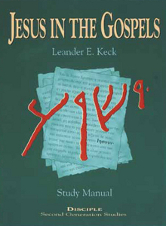 I winced (kind of like I just winced as I typed the title). My shock was apparently obvious as he followed up his comment. “I know it’s kind of crude, but it’s true. Most lay-led Bible studies are pooled ignorance: a lot of people saying what they think something means without having any real theological basis for backing up what they say.”
I winced (kind of like I just winced as I typed the title). My shock was apparently obvious as he followed up his comment. “I know it’s kind of crude, but it’s true. Most lay-led Bible studies are pooled ignorance: a lot of people saying what they think something means without having any real theological basis for backing up what they say.”
My new senior pastor was explaining why he wanted me to focus on teaching a lot of classes myself at my new appointment instead of just empowering lay people to lead various classes. His goal was for me to teach, making a concerted effort to invite and include various lay leaders / teachers to take part to get a more firm theological basis for what they themselves taught.
He was right (though I’ve struggled with trying to find a less-offensive phrase to name it). I remember when I took Disciple I Bible Study how frustrated I was to not have real questions answered by someone who was at least a relative expert on the passages we read. Our lay leader was highly skilled at facilitating discussion but not at giving real historical or theological insight into our readings. Her most common response to our questions was, “Well, what do you think?” – an important and worthwhile question but a question that has led to many misinterpretations, less than Christ-like actions, and splits throughout the history of Christianity.
On the other side of the spectrum are those pastors who don’t think that people in the pews can handle or understand the things that we learned in seminary. Really?! A lot of these folks are doctors, lawyers, and engineers who understand things that may be more complex than intricacies of theology and biblical interpretation. On top of that, people who are “just” farmers, plumbers, carpenters, or electricians are highly intelligent people, which shows that some of our preconceived notions about their vocations can be a bit snobbish.
Frankly, many (maybe most) people in the pews are smarter than me. The difference is our calling. I am called to a vocation of ordained ministry within the day-to-day life of the local church. They are called to a different day-to-day vocation while still being extremely (maybe even more) important to the life of the local church. Because they are so important to the life of the local church, they, too, are capable and worthy of receiving a similar Christian education. So, as a part of my calling, I teach much of what I learned in seminary.
For sure, some aren’t ready for some of the things we learned in seminary, but at the same time, there are some who are tired of hearing the same old trite, pious “Sunday School” answers that get tossed around in so much of Christian education. They long for something more. On top of that are the folks who don’t think they are ready, but stick with it despite the rational, emotional, and spiritual challenges they encounter in new ways of looking at things. Even if their basic beliefs don’t change, they often find the other side transformational.
I remember clearly a conversation with a preschool teacher. “I just don’t think I can continue with this study, Troy. I don’t think I’m supposed to believe this way. I think it’s wrong. Do you believe this?”
“Actually, yes, I agree with most of it,” we were using Marcus Borg’s Reading the Bible Again for the First Time for a small group study. “This is really a good summary of what we were taught in seminary about the Scriptures.”
“Really? That’s not at all what I’ve heard in the church through the years,” said the life-long Methodist. “I’m not sure I should even consider it, much less believe it. It’s just so different.”
“Oh gosh, I’m not saying you should believe it. I am asking you to hear this different viewpoint. Even if you don’t agree with it, surely it can help you better understand and articulate what you do believe – even if it is clearly saying you don’t believe this,” as I pointed to the book in question.
“Well, I guess.”
“I really hope you’ll stay with the study for the community as much as anything. We need to hear your point of view since it is different than what the book is saying.”
“Well, I’ll think about it,” she said with trepidation in her voice.
She came back. She finished the book. Her perceptions were changed. She decided it was okay to believe some of those things, and she was saddened that she didn’t remember ever hearing that perspective before. So, she started teaching some of those concepts to the senior high girls she taught in Sunday school, and those girls ate it up!
 Another lay person (and college professor – later to be seminary student) seriously disagreed with me on some things I was sharing as a part of the Jesus in the Gospels Disciple Bible Study. One night our disagreement escalated to a blow up (a situation that I did not handle very pastorally, much to my chagrin).
Another lay person (and college professor – later to be seminary student) seriously disagreed with me on some things I was sharing as a part of the Jesus in the Gospels Disciple Bible Study. One night our disagreement escalated to a blow up (a situation that I did not handle very pastorally, much to my chagrin).
Yet, she stayed at the table. She came back week after week, and at the end, she noted in a very cordial conversation that much of what she believed had not changed. Nonetheless, she said she had an expanded vocabulary for expressing her beliefs. She had a new appreciation for the fact that people can believe differently and still serve together. She had been stretched, and that was okay – no, actually good. I, too, had grown in how I approach teaching. I was reminded that I need to leave more space for differing beliefs in my leadership.
+++++++++++++++
 Surely you’ve been near a swimming pool that has not been cleaned in a long while. Can’t you see the yellowish, greeny, brown slime beginning to coat the sides? The rancid smell is one that kind of sticks in your nose even after you walk away, right? And don’t breathe through your mouth, because that smell is one you can taste if you’re not careful. You can add more water, but it’ll just evaporate, leaving behind the mildew.
Surely you’ve been near a swimming pool that has not been cleaned in a long while. Can’t you see the yellowish, greeny, brown slime beginning to coat the sides? The rancid smell is one that kind of sticks in your nose even after you walk away, right? And don’t breathe through your mouth, because that smell is one you can taste if you’re not careful. You can add more water, but it’ll just evaporate, leaving behind the mildew.
I think the same can happen in our individual lives of faith and in our communities of faith. No matter how much we stir around the same old thoughts and opinions, the water remains stagnant. The water that brings life becomes so dirty that we no longer get sustenance from us, and if we are not careful, it evaporates, leaving us dry.
We need new, moving, and living water (new ideas) – water (ideas) flowing in AND out to keep our lives of faith fresh. Water comes (new ideas come) to replenish us and leave us to take away that which is stagnant. We don’t have to retain all the water (ideas) coming through. Sometimes we need to let them pass on by, but attaching that which no longer works or is superfluous so that it leaves us, too.
We need to be careful to not simply become pools of ignorance. We need to be able to hear (and share) new and different ideas, not because they are necessarily right (or wrong), but because they can help us approach our lives of faith in fresh or cleansed ways.




Great post!
Thank you Ysabel. I pray all is well.
Troy — Pooled ignorance. It’s hard to hear, but it’s true. We are warned in scripture not to lead others astray by our teaching. In fact, it’s better to have a rope and a rock tied around your neck and to be tossed into the water than to be a false teacher. Now that’s harsh!
I think we give passes to ignorant teachers — they are new or just learning or are more “discussion facilitators.” But how easily an ignorant teacher can become a false teacher.
I dont’ think all the answers lie in seminary trained teachers. But certainly it doesnt hurt to have an experienced hand to lean on — an accountable person to keep check on the truth.
Hi David,
Thank you for writing!
One of the things that frustrates me as much as anything is our being unwilling to even hear another perspective. Sometimes, even if we are “right” we are still ignorant – ignorant of what others think and ignorant of other ways of understanding or articulating our “correctness.”
Even “true Christianity” (which is obviously understood differently by different people) is not succeeding in reaching the masses, and I can’t help but believe that in a large part that is due to our inability (ignorance) of hearing why they aren’t taking part. We just keep spinning the same old stagnant words, phrases, methods, etc. and wonder why they don’t care.